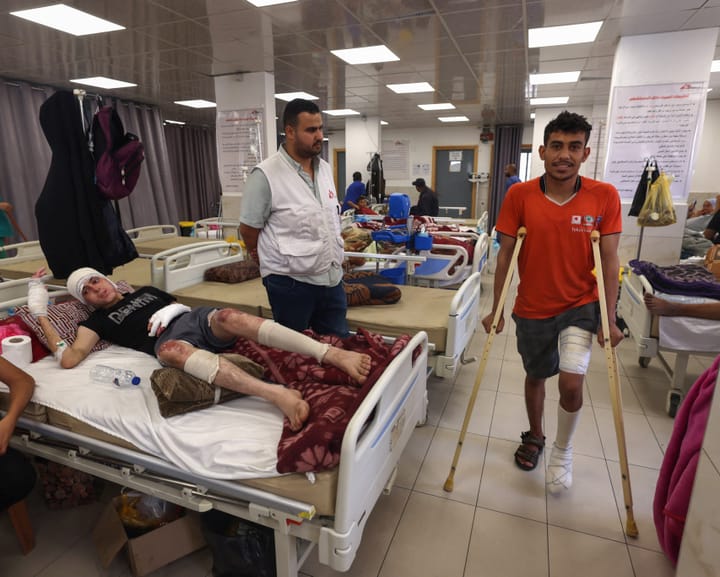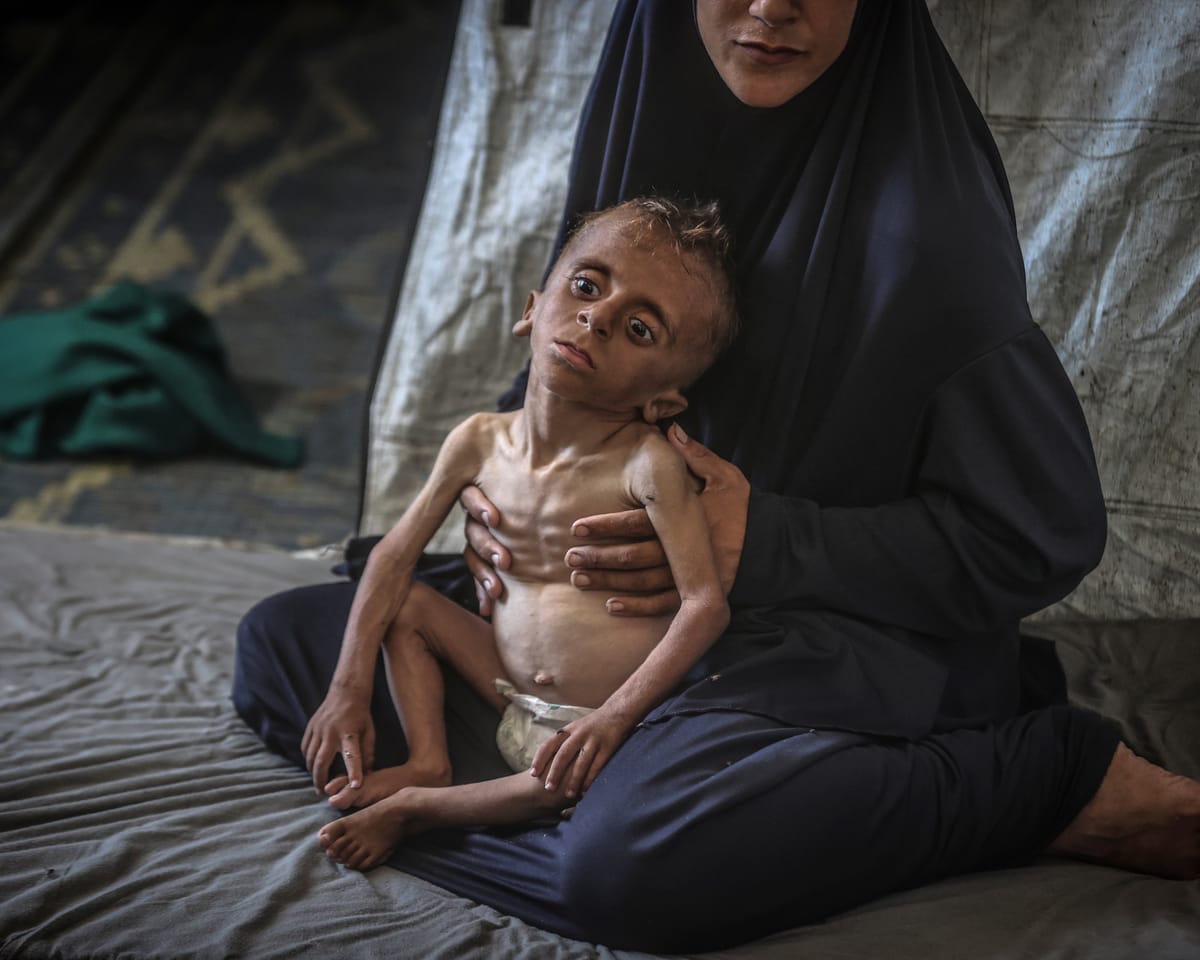The medical organization Médecins Sans Frontières (MSF) reports that severe malnutrition among children under five at its Gaza City facility has increased threefold in the past two weeks as food shortages in the besieged enclave worsen.
Reports indicate growing hunger across Gaza, with daily fatalities linked to starvation as only minimal aid enters the area.
MSF said nearly 25% of young children and pregnant or breastfeeding women screened last week showed signs of malnutrition, with the number requiring nutritional care in Gaza City rising four times since May.
MSF operates extensively in Gaza, with over 1,000 personnel providing services from maternal healthcare to emergency operations.
The group attributed the worsening hunger to severe restrictions on aid access, as international concerns grow over limited supplies reaching the region.
"Starvation in Gaza has escalated to unprecedented levels, with patients and medical staff struggling to find enough to eat," MSF said in a statement on Friday.
Health officials report at least 122 starvation-related deaths, including nine in the last day.
Nearly one-third of Gaza's population is going days without food, according to the World Food Programme, which described the situation as reaching "extreme and alarming levels."
"Close to 30% of people are without food for extended periods. Malnutrition is rising rapidly, with 90,000 women and children requiring urgent treatment," the WFP said.
Naji al-Qurashali, a Gaza-based obstetrician, believes official figures understate the crisis, estimating that half of the pregnant women he examines daily suffer from malnutrition.
"The scale of malnutrition is beyond anything I’ve witnessed. I never imagined such conditions in my medical career," he said.
Miscarriages have surged among his patients as expecting mothers struggle to find food. Many infants who survive are born underweight, prematurely, or with birth defects.
Qurashali said medical supplies are critically low, forcing doctors to use unsterilized gloves and expired medications.
"It’s devastating to be unable to provide even basic care. Often, I leave the hospital overwhelmed by my inability to help," he said.
Experts warn that children and pregnant women face the highest risk in widespread hunger crises.
Read next

Ukraine strikes on refineries leave Russians struggling with fuel shortages
Russia Faces Fuel Crisis as Drone Strikes Cripple Refineries
Russia, often regarded as an energy powerhouse, is experiencing unexpected fuel shortages after a series of Ukrainian drone strikes damaged refineries across the country.
In several regions, petrol stations have run out of fuel, prices have soared to unprecedented levels, and

"France in crisis: Economic dispute escalates into political turmoil"
France finds itself in economic uncertainty, lacking a budget and possibly facing a government collapse. Prime Minister François Bayrou has called for a parliamentary confidence vote on 8 September. With left-wing and far-right parties vowing to remove the government, he lacks the necessary support to prevail.
Recently, the Socialist Party

"MSF reports a third of Gaza outpatient wound patients are children"
Nearly one-third of outpatients treated for injuries at medical centers operated by Médecins Sans Frontières (MSF) in Gaza last year were children under 15, according to data published in The Lancet.
The statistics, shared by MSF in correspondence with the medical journal, were gathered from six healthcare facilities in Gaza,

